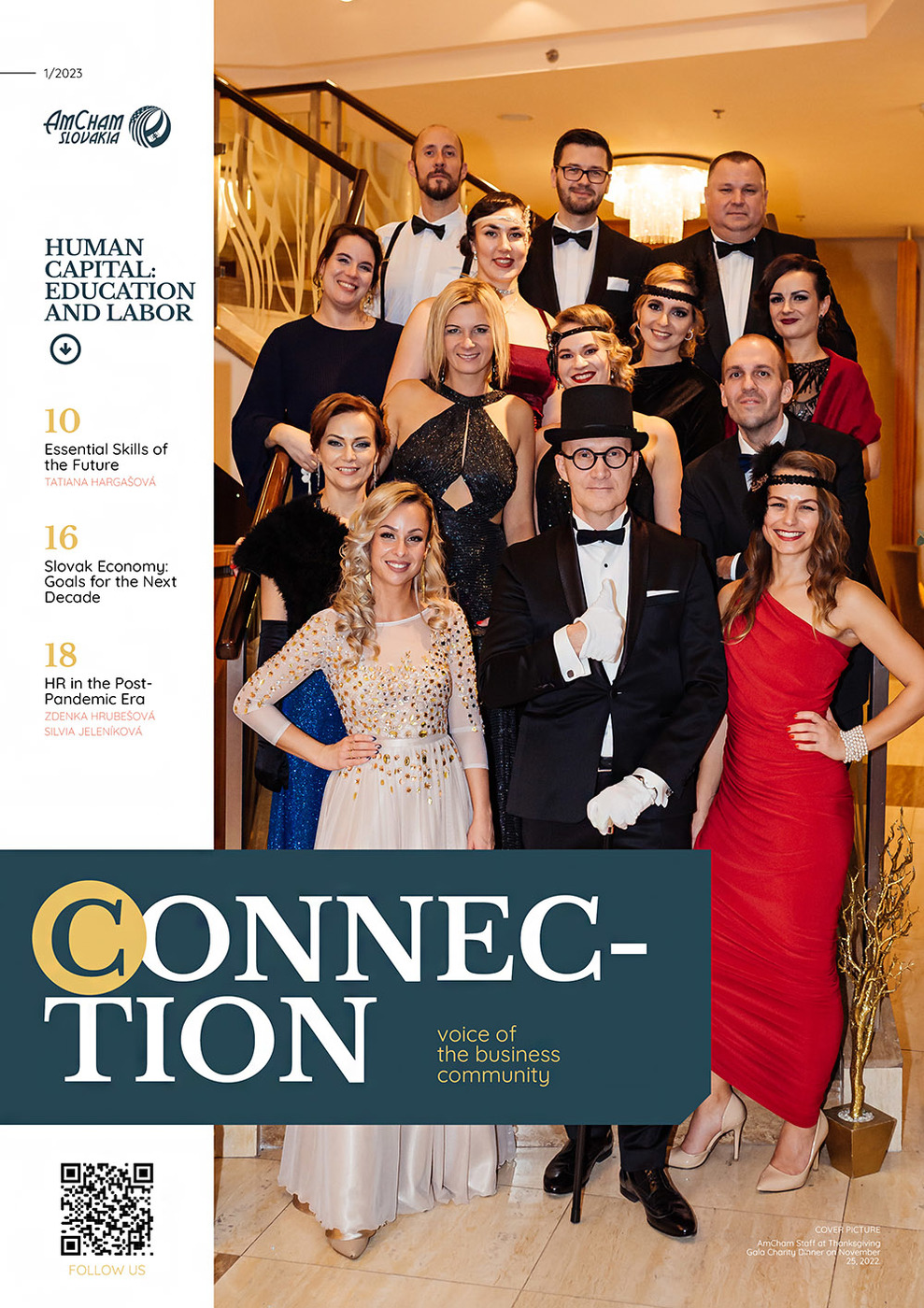The fact is that we found ourselves in a new and unique situation. Anti-pandemic measures including the limitation to provide face-to-face educational activities proved to be a challenge that needed to be overcome.
The new requirements for social distancing have accelerated changes in our lives on several fronts. With the change in the form of education, from face to face to online, it became clear that the post-pandemic market demands new skills. Change is no longer seen as a threat but rather as an opportunity to make the best of this new world.
What are the essential skills of the future?
According to the KPMG survey Future Skills: Is Slovakia ready?, HR representatives of companies based in Slovakia are aware of the skill gap brought along by this fast-changing world. Whilst 80% of respondents believe that the adaptability to change and critical thinking are the most important factors to succeed in the future, these are also the skills that top the list of skills missing from the workforce.
Furthermore, over 70% of respondents believe that digital skills are a must for the future, but over a third of respondents believe such skills are missing from their organization. Among the skills identified as necessary for future jobs are also the willingness to learn, financial and business acumen, problem solving, entrepreneurial mindset, creative thinking, and ability to collaborate.
While businesses need to look forward to be successful, according to 80% of the survey respondents less than 20% of their training budgets were dedicated to future skills development which is a rather worrying statistic.
The report of the Big Innovation Centre claims that the only skill that will be important in the 21st Century is the skill of learning new skills. Several other trusted publications support this idea claiming that companies will need individuals who are adaptable and can continuously learn in a constantly changing world.
The rise of new technologies is increasingly transforming the combination of routine and non-routine tasks in the work process resulting in the importance of individuals owning an equal combination of hard and soft skills complimenting each other. Hard skills like practical skills from science, technology, mathematics, and engineering will be needed for building new technologies. Of course, understanding the principles of finance is equally important. However, advanced soft skills will be the ones that will give humans competitive advantage over machines.
 How and where to gain the future skills if many are still just adjusting to the post-pandemic reality?
How and where to gain the future skills if many are still just adjusting to the post-pandemic reality?
Perhaps one of the best trends that could emerge from the whole situation is the flexible learning experience. Before the pandemic, online learning was often seen as a complimentary form of training in corporations, mainly for mandatory trainings coming from the global headquarters. Many local companies didn’t use the online form of training at all.
Thanks to the rise in online resources and digital tools, we were able to adapt to different needs. A hybrid form of education, where some of the participants are present in the classroom and some connect virtually, seems to be the new trend in corporate training. One can argue that the face-to-face form of education is still the most efficient and effective way to educate, and most likely for certain areas it really is. On the other hand, the hybrid form of education has its advantages too. There is no doubt that in the long run, online education saves travel costs and is accessible to a wider circle of people making it more global and inclusive.
Learning through gamification is the future of soft and hard skills development
While the space for gamification in education has huge potential, this is especially true for the development of soft skills, where the future of work continues to push the boundaries and shape the direction of what and how students learn, in the shadow of the looming threat of job automation.
Researchers from Clemson University in South Carolina found out that students either learned more or showed more improvement in skills such as critical thinking and problem solving when game design elements of competition, collaboration, and role-playing were incorporated.
Gamification as an educational approach is time efficient. In a relatively short time, the participants can learn many skills by making decisions, executing strategy, and experiencing the consequences of their decisions. Retention of knowledge is extremely high, new information is transferred from short term to long term memory and participants gain understanding of principles and processes. Teamwork, competition between teams and fun add to the positive emotions which are key to an effective learning experience.
One of the goals of professional education is to increase the knowledge and skills of the participants by helping them to understand the details and at the same time to help them see the bigger picture. However, the ultimate goal of education is the application of new skills acquired by the learners in practice. Training based on gamification methods ticks all the boxes.
Tatiana Hargašová, Director, Head of KPMG Business Institute, KPMG in Slovakia



Follow us